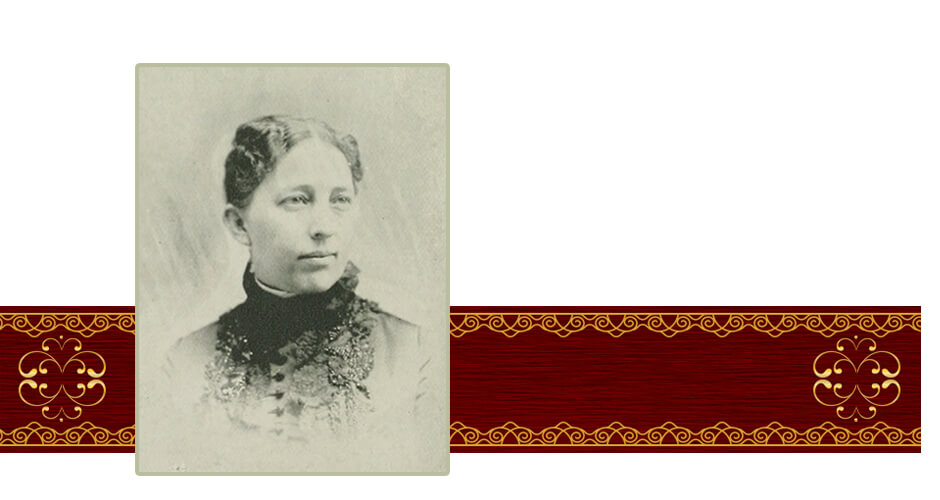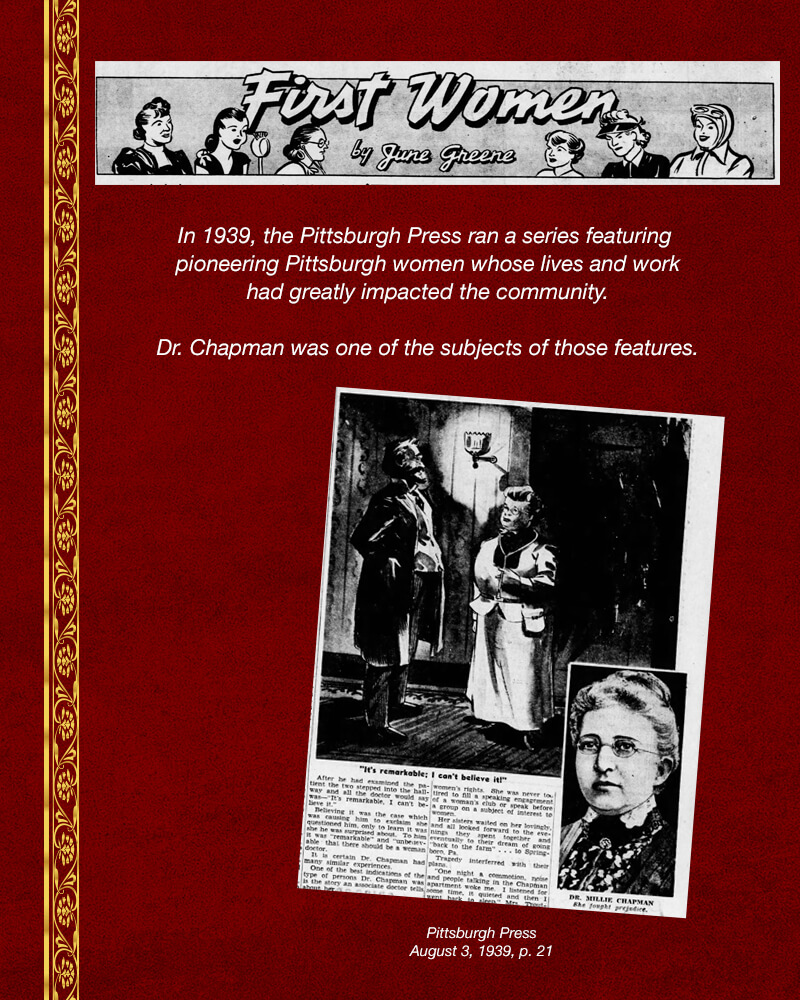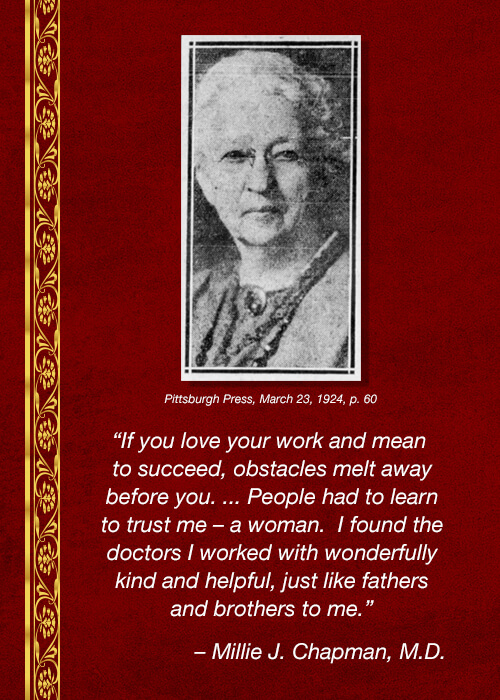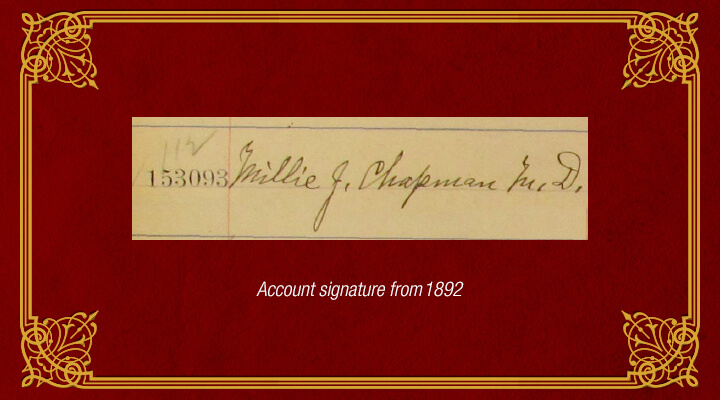Millie J. Chapman, M.D.

One of eleven children born to Lewis and Robey Chapman, Millie Jane Chapman grew up in Crawford County, Pennsylvania. Her father, Lewis, was the burgess, tax collector and justice of the peace of the tiny rural community of Springboro.
Millie Chapman taught school for twelve years before pursuing a medical career. She earned her degree at the Cleveland Homeopathic Hospital in 1874, then returned to Pennsylvania and set up practice in Pittsburgh. She was one of just three female physicians in the city at that time.
In 1877, Dr. Chapman was made a member of the dispensary board at the Homeopathic Hospital in downtown Pittsburgh. A few years later, she joined its staff.
Dr. Chapman spent her career tackling one of the terrible scourges of the era -- child mortality. Before 1900, nearly one-third of American children died before reaching age five. Dr. Chapman taught hygiene and nutrition classes for young women at the Y.W.C.A. For 25 years, she was the physician for the Curtis Home for Women and Children, an emergency shelter for destitute women and their children. She attended children for several aid societies, including the Association for the Improvement of the Poor, and the Salvation Army.
First president of the Women's Homeopathic Medical Association of Pittsburgh, president of the Homeopathic Medical Association of Allegheny County, and chairman of the Boards of Obstetrics and Gynecology of the Homeopathic Medical Society of Pennsylvania, are just a few of the offices Dr. Chapman held in professional associations. She traveled the Eastern United States, attending medical conferences and delivering papers. She authored a number of articles that appeared in medical journals. One of her articles on prenatal care, translated into German and Russian by a Russian physician, was so well received by the Russian medical community that Dr. Chapman was asked to write more extensively on the subject.
Dr. Chapman led a full and active intellectual and social life in addition to her medical practice. She was a member of the Travelers Club, the New Era Club, the Women's Club of Pittsburgh and the First Christian Church of Pittsburgh, where she was a tireless Sunday school worker. Her interests went beyond medicine and touched the subjects of history, architecture, art and foreign cultures. At the Travelers Club, she presented papers on subjects as varied as the Franco-Prussian war, the poets and poetry of Europe, and the ancient Roman towns of Pompeii and Herculaneum.
As a member of the Daughters of 1812, a patriotic organization helping veterans' causes, Dr. Chapman was active in efforts to improve the quality of life for American troops serving overseas. Her chapter of the Daughters of 1812 helped stock a reading library for American troops in Manila, Philippines. She was president of the Pennsylvania Department of the Women's Relief Corps of the Grand Army of the Republic, a Civil War veterans organization with nearly half a million members in the 1890s.
Dr. Chapman was also a patroness of Kingsley House, a settlement house founded in 1893 to provide social, educational and recreational programs for Pittsburgh's immigrant workers and their families.
Chapman remained very close to her siblings, several of whom stayed in their hometown of Springboro, Crawford County. She was especially close to her sisters Sarah, who owned a millinery shop and ran a tailoring service in Springboro, and Robey, a teacher who also worked for the Conneautville Courier. All three sisters regularly traveled to visit each other in their respective homes.
After 35 years of medical practice in Pittsburgh, Dr. Chapman returned to Crawford County in 1909 and settled in Springboro.

Although she left Pittsburgh, she never ceased to consider herself a Pittsburgh woman, and she retained close professional and personal ties to the city. In 1924, on the occasion of her fiftieth year in medicine, Dr. Chapman was honored as one of the most successful career women in the history of Pittsburgh. Reporter Gertrude Gordon of the Pittsburgh Press described Chapman as "one of the first women physicians to come here and the first who came here and remained."
Millie Chapman never retired from medicine, and up until two weeks before her death at age 88, was still receiving patients in her office.
